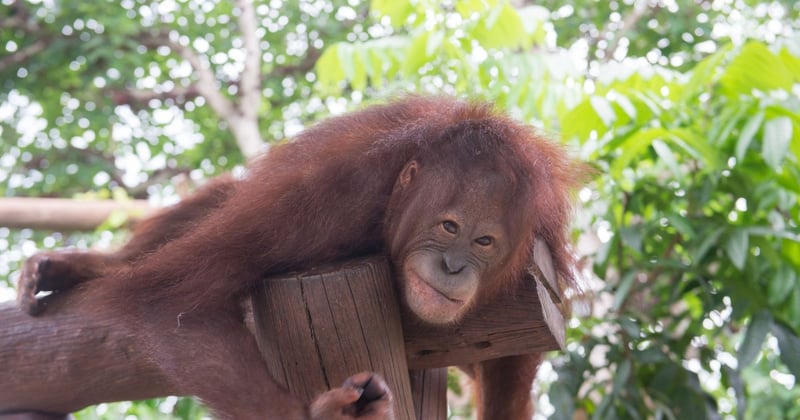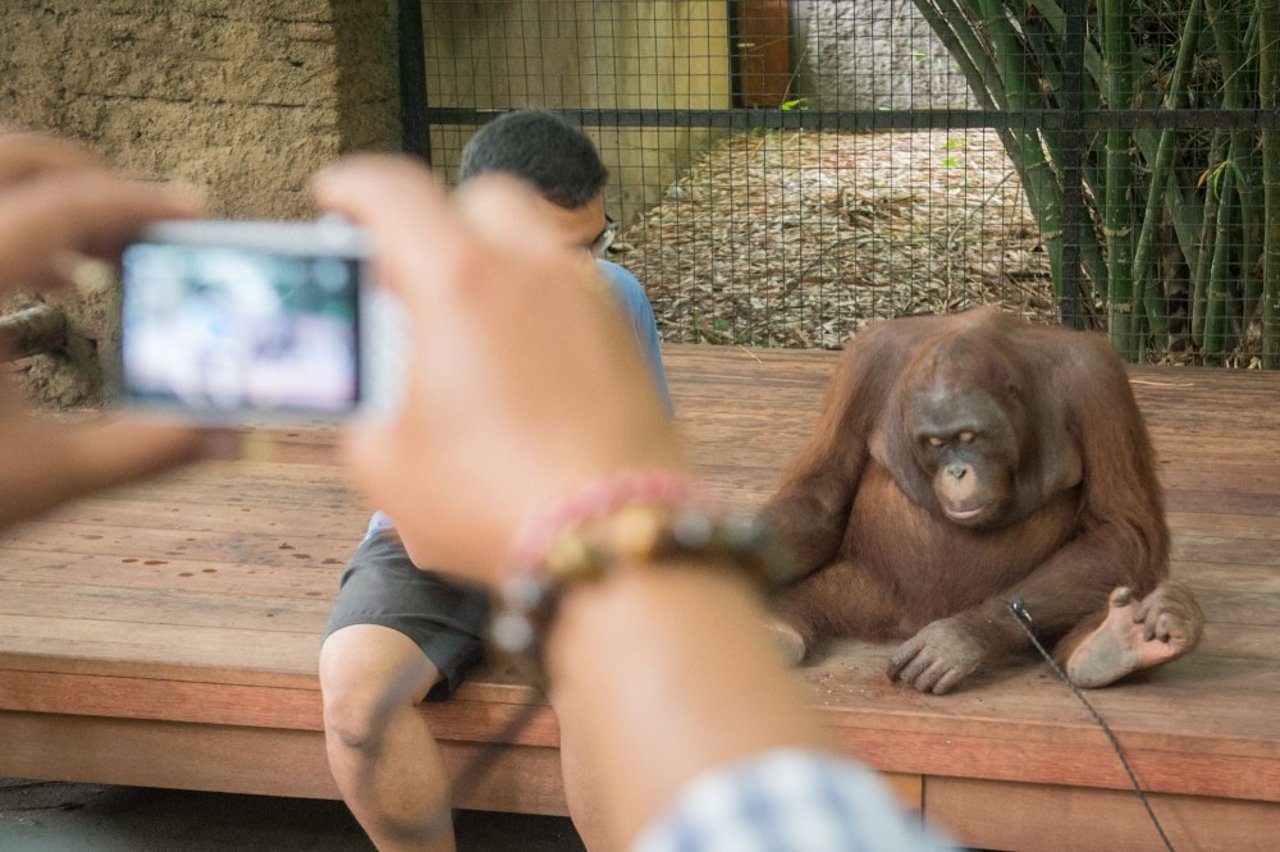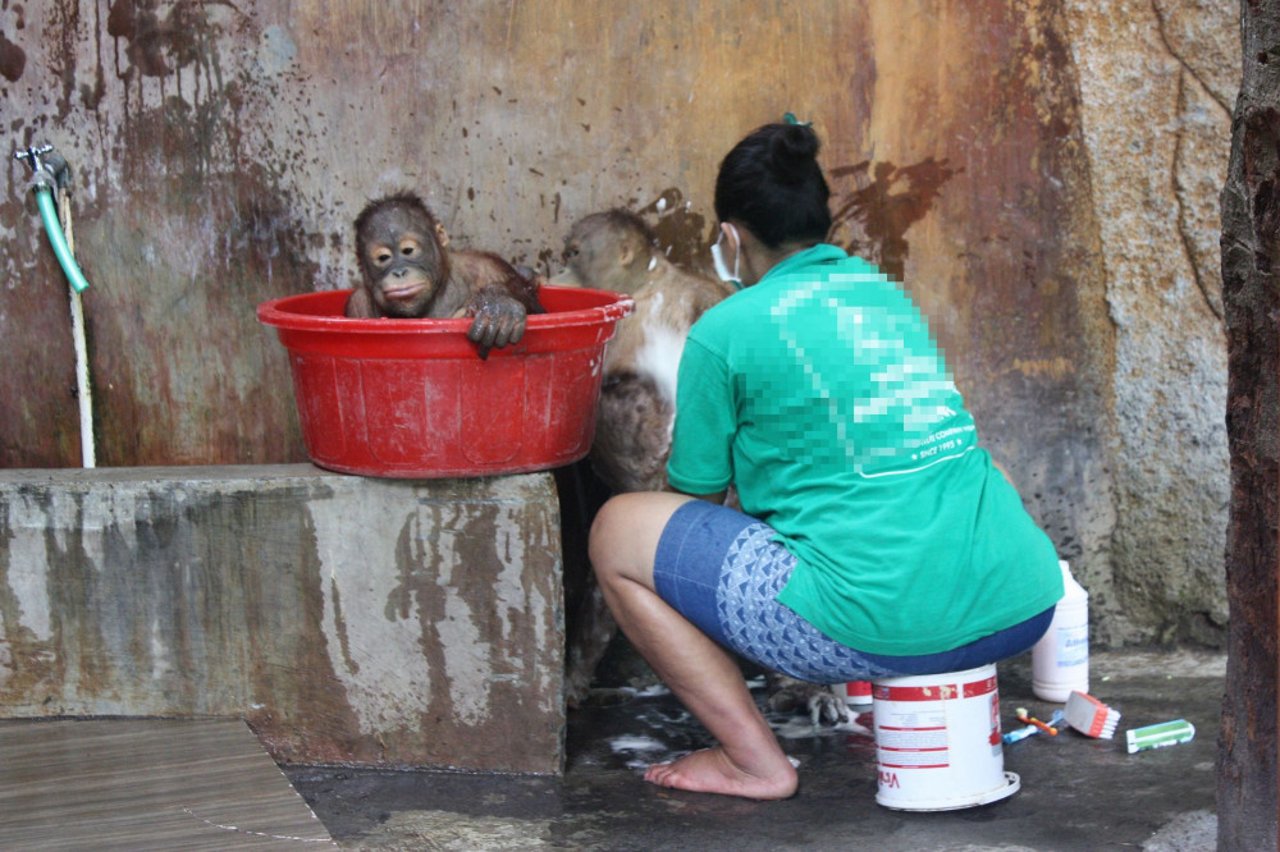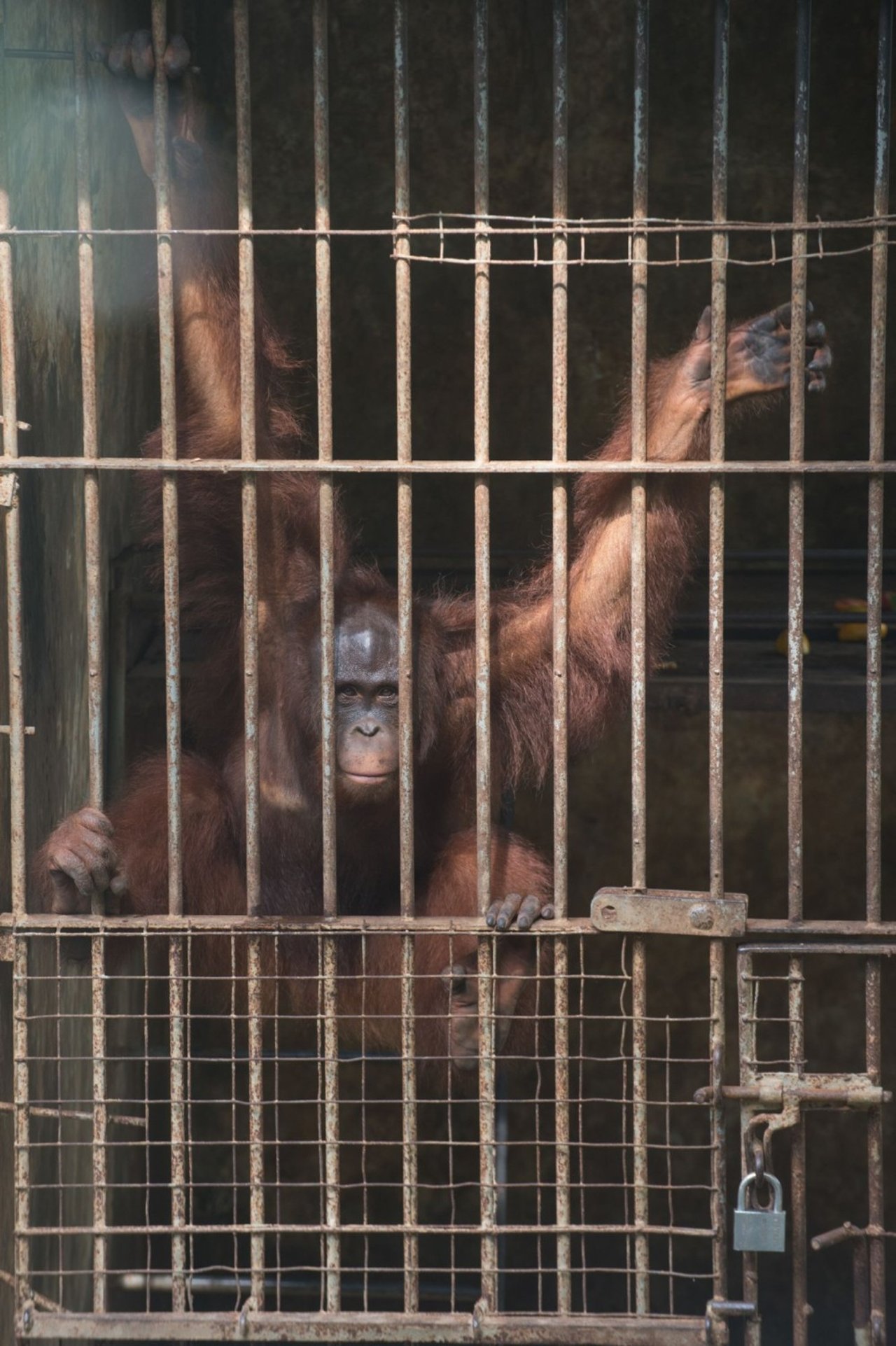
Orangutans are suffering for selfies
News
Wildlife selfies, where tourists capture and share images of themselves with wild animals, have become increasingly popular within wildlife tourism venues. Most travellers don’t realise their once-in-a-lifetime encounter with a wild animal, can mean a lifetime of misery for wild animals.
There's no excuse. It's abuse.
For a price, members of the public can pose next to wild animals like orangutans, touching them, kissing them, and feeding them while having their photo taken, with no regard for the animals’ comfort. Sadly, wild animals are often kept on short chains for these photo opportunities.
A recent investigation by World Animal Protection observed young orangutans clinging to each other in the absence of their mother. In the wild, orangutans have intense relationships between mother and young and will carry their young for up to five years. Mothers separated from their offspring show deep signs of despair.
For baby orangutans, the separation from their mother is just the beginning of a lifetime of suffering in captivity. Our investigation revealed baby orangutans being shampooed and dressed in nappies daily; ready to be used as props in photos.
These orangutans were then passed between tourists for hours on end. After the tourists left, they were returned to small barren cages. This is a far cry from the life these intelligent animals would live in the wild.
Become part of the solution
Whether you’re travelling locally in Australia or overseas, make sure animal abuse doesn’t feature in your holiday photo album. Removing tourist demand for wildlife selfies is vital to prevent orangutans being taken from the wild for entertainment.
We’re asking travellers to avoid wildlife abusement parks and boycott the travel companies that promote them. As a good rule of thumb, if you can ride, hug, or have a selfie with a wild animal, you know it’s cruel.
Let’s keep wild animals in the wild, where they belong.
Removing tourist demand for wildlife selfies is vital to prevent orangutans being taken from the wild for entertainment.


